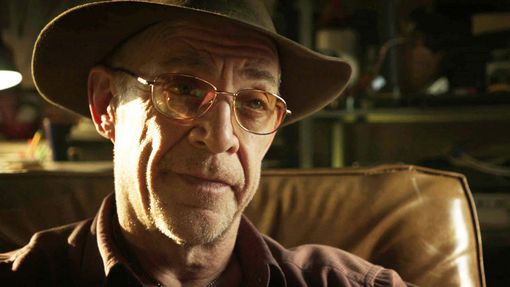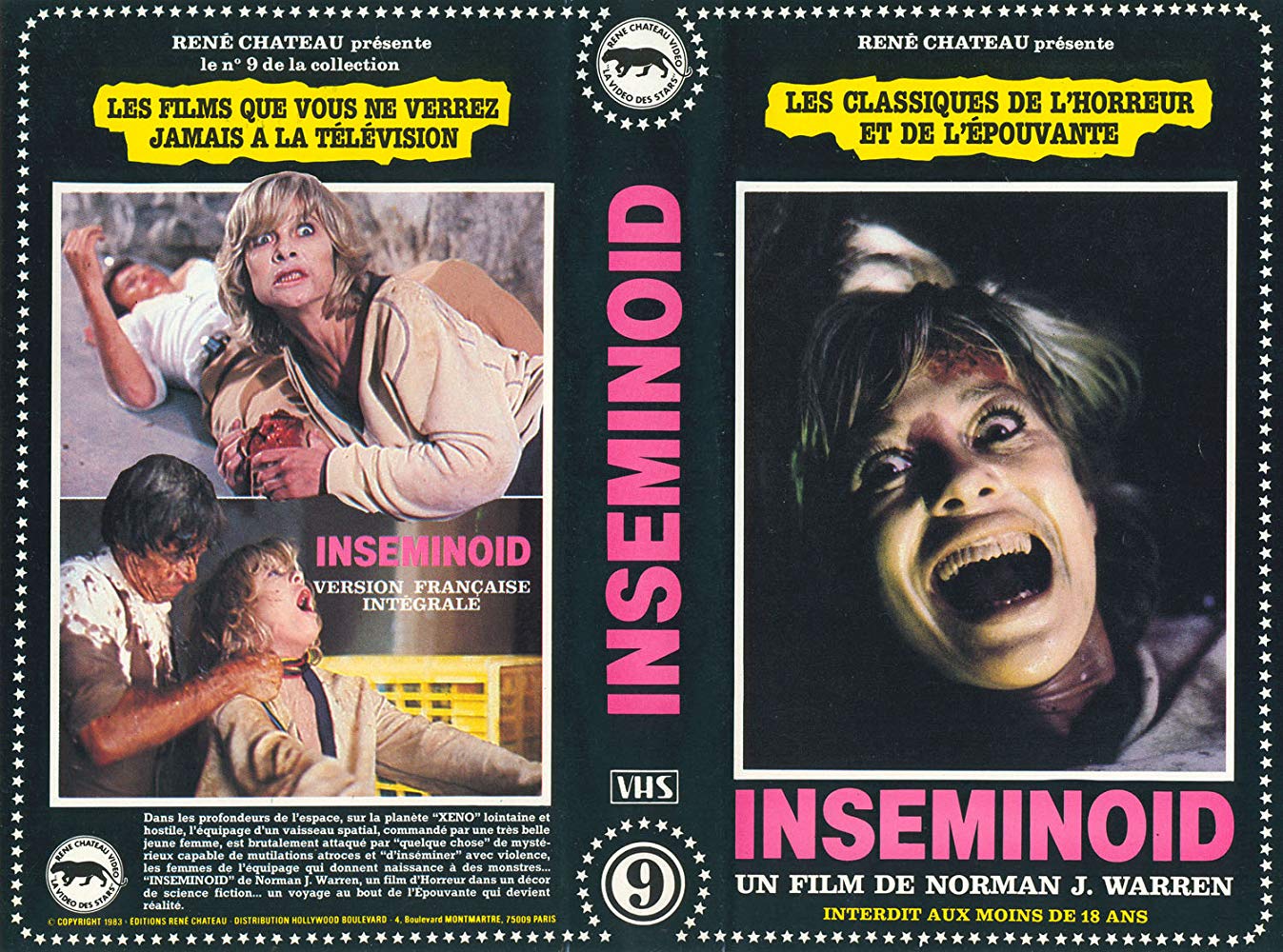
By Emad El-Din Aysha, PhD
I made the mistake of watching a horror movie once late, late at night. Had drunk a cappuccino earlier in the day so I couldn’t sleep and I thought watching one would keep me sharp. And, knowing me, I agreed to go along since the scary pick in question was an SF movie as well – Dark Skies (2013).
You can guess from the title that it’s an alien abduction movie. Not my favourite subgenre but a very educational work of SF nonetheless. Americans, you see, are obsessed with UFOs and close encounters of the personal and often sexual kind. The conclusion I’ve come to, over the years of monitoring this is that this paranoid streak in them is an externalisation of anxieties Americans have in their daily lives. Such tensions are quite common in the modern world but in a polyglot country like the US it takes on this sci-fi angel. Watch lots of classic American SF, and they practically invented the alien invasion genre, and the paranoia ebbs and flows with America’s confrontations with the rest of the world. Hence, black and white movies depicting flying saucer invasions or first contact side-by-side with other Hollywood classics that depicted (ridiculous) Soviet invasion scenarios. Robert Heinlein transformed the Communist threat into the hive-mentality of the bugs in Starship Troopers and it was in this era that the term UFO, a strictly military phrase, was invented.
I’ve argued elsewhere that the most popular model for alien in American folklore, the so-called ‘Greys’, is really a stand-in for the yellow peril. They have slit eyes and dome-shaped heads and aren’t always grey – sometimes they have yellow skin.[1] These foetus-looking aliens popped up in the popular imagination in the 1970s-80s, in the wake of America’s historic defeat in Vietnam (following on from the Korean War and loss of China), coupled with America’s economic troubles and the encroachment of Japanese investments and corporate takeovers. That, by pure coincidence, is when cyberpunk was born and the Japanese and Asian presence always played a big role in everything from William Gibson to Blade Runner to Max Headroom. Same goes for UFO mythology even beyond the Greys, since it was roundabout this time that the ‘Men in Black’ mythology developed, and one of the three men in black suits (the g-man look) who always appeared was an oriental!
America’s are more uniquely attuned to these anxieties, again, because of the diverse makeup of the country, pitting red blooded Americans against foreigners all the time with attending fears about assimilation, integration or cultural dilution. Not to mention that the Orientals have always been there, from the time of Chinese railroad workers onwards. If you don’t believe me, check out the Chinese migrant presence on Venus in Heinlein’s forgotten classic, Between Planets. These are people who are just as industrious, mobile and commercially minded as the Americans, but in a distinctly non-individualistic fashion, while also never losing their sense of rootedness in their traditions and original homeland. (Even the native population on Venus are called ‘dragons’).
You would ‘think’ such fears of the Oriental other had subsided in the 1990s, with the final end of the Cold War and the eventual slowdown of the Japanese economy. But no, 9/11 and the even bigger economic threat posed by China reignited them. Hence, this article!
Cloud cover ahead
Dark Skies opens with an idyllic scene, a clean (and white) suburban neighbourhood getting patriotically ready for the fourth of July. Everything seems okay but the happy families are not as cohesive as they look, with kids spending too much time with their peers, watching blue movies, and mobile phones either being used to try and get hold of missing family members or pulling people away. Then you have a barbecue scene with neighbours and the middle class types are talking about economic policy (inflation, interest rates), personal problems (drugs, broken homes) and…: “I got two scary words for you, though: China. India.” (There’s also the concern with ‘potato salad’, anxieties about what foreign substances you ingest into your body). Next night you find that the father and mother of the target family, Lacy (Keri Russell) and Daniel Barrett (Josh Hamilton), aren’t having enough sex because of work pressures. (The husband is unemployed and can’t afford everything from the cable bill to a therapist for his kids, never mind a marriage councillor).
Then strange occurrences begin to happen, apparent break-ins, along with more marital and economic problems and the kids getting worried their parents are going to separate. Then their youngest son, Sam, begins to behave oddly and have memory blackouts. Weirder still, the parents themselves begin to behave oddly and forget things too. The upshot of all this is political however. When Lacy and Daniel finally go to a so-called expert, on alien abductions, he says that the aliens (greys) are planning to steal your children and that the only way to stop this from happening is to ‘stay united’!
It’s as if the guy who wrote the script is an Arab. The expert says, in no uncertain words: “Everything the Grays do is intended to divide us from one another, to isolate the one they’ve chosen. Your greatest defence against them is if your family is unified.” He also says: “The presence of the Grays is now a fact of life. Like death and taxes.” (The expert, played very nicely by J.K. Simmons, has a necklace round his neck with something dangling from it that looks like a bullet).

There’s lots of other little hints strewn along the way too. The password for the alarm system is ‘Lacy’, with woman as the trademark symbol for land and country. The older son (Jesse), who is taken by the aliens instead, has an uncharacteristic haircut that makes him look as if he’s from the 1970s – the ‘make love not war’ generation. His best friend is obsessed with guns and action and doesn’t like the old-fashioned variety of naughty movies. And the place they get girls in is a house his mother is trying to sell; he knows the code to the lock. (Still, it’s an improvement over the original nostalgic period Americans take as ideal, the very Cold War Eisenhower era when suburban America began). When the aliens finally come, it’s the 4th July (how convenient) and Daniel thinks he can defend his family by boarding up the windows and buying a gun and a guard dog. Jesse correctly points out that the way to beat them is to all stay together in the same room. (Previously Daniel has surveillance cameras placed in all the rooms, including the bedrooms).
More poignant still is a scene where the family is having a final supper, before the aliens come, and the kids are disappointed they can’t watch the fireworks outside the house (because the windows are boarded up). So Daniel turns on the TV set and you see the 4th July celebrations, fireworks around the ‘statue of liberty’, typically. How can you enjoy freedom when you’re insecure, let alone exercise your political rights? Then Daniel reminds Jesse how the last time they watched the fireworks on independence day, the boy wanted to go home instead. (This was before they moved to this expensive white collar neighbourhood).[2] Again, all 9/11 themes.
Not to forget the more mundane stuff. There’s a cool scene where Lacy is showing a house to a young couple, then she behaves bizarrely and eventually goes to the glass door and starts banging her head on it continuously, then forgets all about it afterwards. (She always repeated the same lines anyway to new prospective buyers, like the quintessential broken record).
Unbridled capitalism turning everybody into mindless robots, in other words.
The psychology of distance
Becoming a soulless thing that can be pocked and prodded (a lab rat, as the UFO expert says) and ‘conditioned’ into obedient modes of behaviour is hinted at early on since the younger son Sam has a pet lizard and he says he wants to rehabilitant it. In one of the nicer scenes Sam is asked about when he was in the park screaming. He says he can’t remember because “Then I wasn’t me any more.” Alienation, the original concept fielded by Hegel, wasn’t so much being alienated from society but alienated from yourself – becoming a stranger to yourself.
That’s one of the key concepts in the movie. You have a scene where Daniel is at a job interview, he’s an architect, and the businessman in question admires him for being a stay at home dad. Role-reversal is a key theme here, a kind of emasculation, along with the wife getting stressed out by having to put bread on the table. That also might explain why Jesse has to use porn movies to figure out how to talk to girls – it almost gets him into trouble – since his father isn’t there to shepherd him as a role-model. (Contrast this to Jesse’s friend and his macho father).
The boy generally has a problem with ‘relating’. In a scene where his mother talks about him growing up she says he was sickly all the time, as if “he was allergic to the entire world.” When psychoanalysing this species of movie the million dollar question is, who is the alien in all this? The short answer is, anyone – or anything – you want it to be!
From the nationalistic perspective, its foreigners; China and India, and before them Japan. From a classicist perspective it is other social and economic groups. From a mass perspective it’s the government – hence the scene where Lacy looks at a conspiracy theory, a secret weapons system, that may have led to the birds crashing into her house. (Remember the g-man paranoia. And avian flu is mentioned here, another big anxiety taking the place of aids. From the employees perspective it’s the bossman. Not to forget that kids can externalise their parents in their minds. If you look at the drawings little Sam does of himself and the aliens, they’re leading him by the hand like they’re his family, and he draws himself with an elongated head like them – identifying with them instead of his real parents and the human race. (Note that are ‘three’ aliens, evidence of Christian symbolism that pops up in the MIB mythology). There’s also a scene where Jesse imagines he’s in that other house he has fun in, and he sees that his father has accidentally shot his mother and is about to kill himself. Daniel confesses to making a mess of things, as the head of the household in effect.
More generally, it can be your next door neighbours, if you come to fear and suspect them. (Daniel gets into a fight with that macho father mentioned above). More fundamental still, your own body can become a stranger to you. When the UFO expert asks them about implants he says: “And have you experienced a feeling that you might not be in control of your own body?”
I should add that there is also a gender angle in all this. Men see women, female psychology and physiology as incomprehensible, and the same holds true of women looking at men. The only difference is we’re the ones in charge so it comes out more in works of popular culture, horror and sci-fi included. I was watching an unpleasant SF horror movie once, Inseminoid (1981), where you have a human crew on an alien world investigating the archaeological remains of a now dead race. (Or so we think). One of them, a woman, gets impregnated by the aliens and in the process she goes mad and starts killing her colleagues. But it’s worse than that. Her ‘cravings’ as a pregnant woman come out and she feasts on human guts. The childbirth scene is also horrendous, for us as men because we can’t fathom that level of pain and emotional bonding women go through.
You can see more or less that same thing in movies like Prometheus (the scene where Shaw is giving birth) and in Alien before that with Kane’s emasculation. More interestingly you have movies like Road Trip and Return of the Living Dead III. When the young men are stranded in the countryside in Road Trip, one says it won’t be long before our first ‘ass raping’; homophobia as emasculation. Culture shock often manifests itself in contagion fears and anxieties in general can often have psycho-sexual symptoms, a thesis that has actually been pitched to explain abduction scenarios and by some UFO researchers no less. In the Living Dead movie you have a scene where the hero’s girlfriend goes to a store and keeps sampling different foods not knowing what it is she craves. (Human flesh, obviously, after being turned into a zombie). Which brings us back to Inseminoid. The choice of actress for the insemination, Judy Geeson, was excellent – the girl from To Sir with Love. She’s very pretty and has a small body, so she looks vulnerable, a natural victim you feel sorry for. At the same time she has pale blonde hair and pale blue eyes, so she looks quite cold, especially with the short haircut. You get a similar set up with the lovely Keri Russell.
Daniel is significantly taller than her (but not nearly as mature looking) and she has a very expressive face, with the strong forehead, round features and big eyes (green) and reasonably blonde hair. Daniel’s appearance is quite forgetful in comparison. Well, as luck would have it I’d written a review of the third Impossible Mission movie once and described Keri Russell as an American innocent. What I should have said was ‘starry-eyed’ American innocent. She has that all-American girl appeal to her. I’m glad to be vindicated after all these years. And since we mentioned American paranoia about your next door neighbours above, note that Keri Russell played a KGB agent in The Americans, also under the guise of a respectable family in a suburban neighbourhood.

Oh, one last point before signing off. The UFO expert in Dark Skies talks about three species that are reported by abductees. The Greys, but also the lnsectoids and the Reptilians. Then he says he doesn’t believe those two other ones, saying the reports are ‘unreliable’. (Hah!) Well, as mammals we find insects and reptiles completely alien to us, and the vast majority of traditional depictions of aliens in pulp SF have them being green (like reptiles) or looking like dinosaurs, or being insect-like. And insects have slit-eyes like the Greys. (The oversized head is meant to make the look like our mental superiors). So it’s all a sham, updated to match the times in people’s subconscious’s and in popular literature and art.
While I was watching Dark Skies, I kept flicking the channel to an Arab satellite channel full of politics to calm myself down. It certainly stops you’re head floating up into the pockets of air where it doesn’t belong and reminds you of how Westerners have nothing to complain about and are creating enemies and fears where they don’t need them. It also stops you have nightmares after watching a horror movie after the witching hour.
Who needs horror when you’re already awake in a living nightmare!!!
NOTES:
[1] I figured out while attending a super cool lecture by Marie Lathers, author of Space Oddities: Women and Outer Space in Popular Film and Culture, 1960-2000 (2010). The lecture itself was on 31 March 2009, “Arabs, Aliens, and Women: The Colonization of Outer Space in Popular Culture”, at the American University in Cairo, New Cairo campus.
[2] It is also noteworthy that haunted house scenarios always seem to happen with young couple moving to a new place. Your home is supposed to be where you feel safe in but if it’s foreign to you, a place you didn’t grow up in or build with your own hands, then it’s invariably ‘alien’. And Americans do move around a lot!





